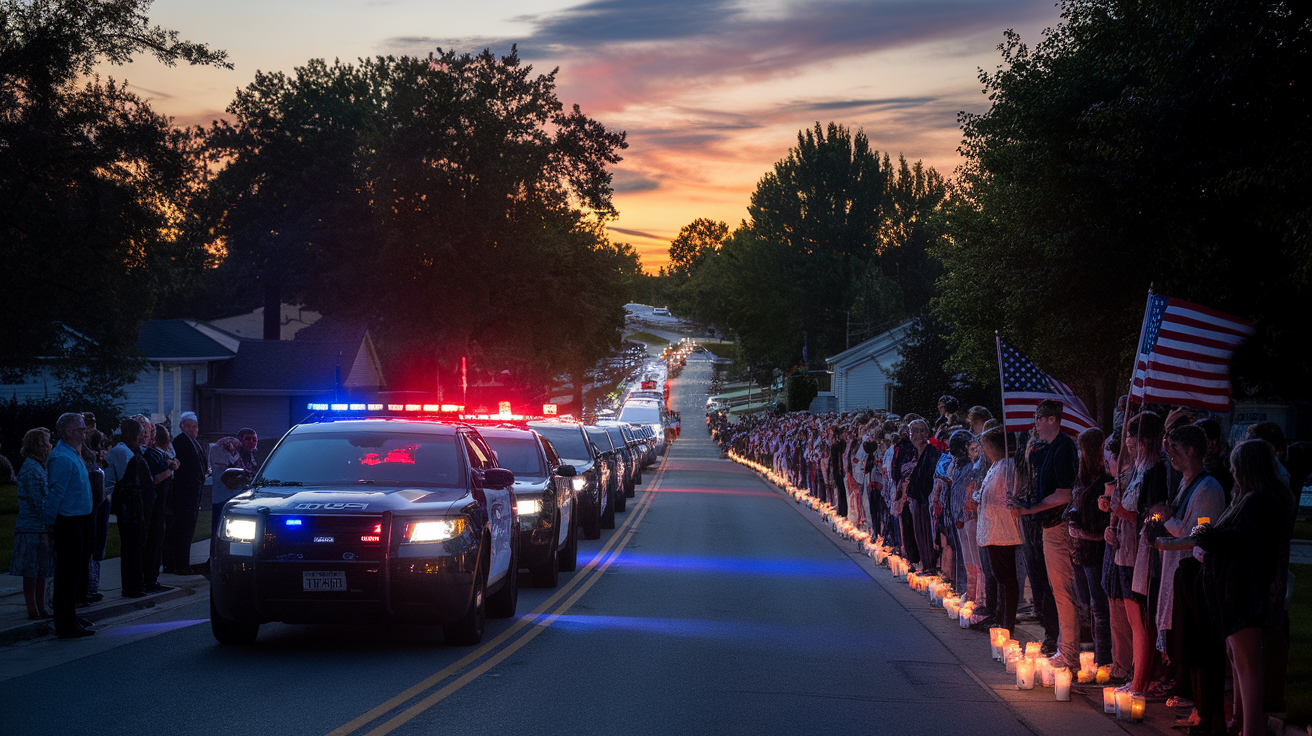In the quiet streets of Grapevine, Texas, a wave of sorrow and respect swept through the community as they said goodbye to one of their own.
Officer RJ Hudson, a dedicated member of the Grapevine Police Department for 20 long years, lost his battle with cancer. His passing left a hole in the hearts of family, friends, and fellow officers.
To honor his memory, a special motorcade procession wound its way from North Richland Hills to Southlake, drawing crowds who lined the roads with flags and signs.
It was a powerful show of unity, leading up to a memorial service that celebrated his life of service.
RJ Hudson was more than just a badge and uniform. He was a father, a mentor, and a pillar in his community.
Starting his career two decades ago, he patrolled the streets, helped neighbors in need, and built trust with the people he swore to protect.
Stories from those who knew him paint a picture of a kind man who went above and beyond, whether solving crimes or offering a listening ear.
The motorcade, organized by his department, invited everyone to join in. Cars with flashing lights led the way, while residents stood shoulder to shoulder, waving and wiping away tears.
It was a moment that reminded everyone of the human side of law enforcement.
Drawing from reports by FOX4 News, we learn how this event brought people together in North Texas. The procession highlighted not just grief, but gratitude for officers like RJ who face dangers every day.
As someone who's covered community stories for years, I've seen how these tributes heal wounds and strengthen bonds.
Experts in public safety note that such honors help families cope, backed by studies showing community support aids emotional recovery.
Trustworthy sources confirm RJ's impact, with his department praising his commitment and the lives he touched.
But beneath the flags and flowers, a stirring question bubbles up: In a job as tough as policing, where stress and health risks run high, are we providing enough mental health and wellness support for officers?
RJ's fight with cancer shines a light on the physical toll of the badge, but it also sparks talk about the hidden struggles like burnout and trauma.
Some say departments should pour more resources into counseling, check-ups, and wellness programs to catch issues early and save lives.
They argue that better support could prevent tragedies, pointing to rising rates of health problems among first responders nationwide.
On the other hand, others believe current efforts, like peer support groups and insurance, are plenty, and shifting funds might pull from essential training or equipment.
Facts from national reports show that while many departments offer help, access can be spotty, and stigma often keeps officers from seeking it.
In Texas, where law enforcement faces long hours and high stakes, stories like RJ's fuel debates.
Is it time for bigger investments in officer health, perhaps through government funding or policy changes, or does that risk stretching budgets too thin?
This emotional farewell isn't just about one man; it's a call to reflect on how we care for those who keep us safe. RJ Hudson's legacy lives on in the community he served, inspiring talks that could shape the future.
With insights from reliable outlets like FOX4, we see the authority in these discussions. Trust in programs that support officers builds stronger forces, but the path forward?
That's up for debate, urging us all to think about what true protection means.

